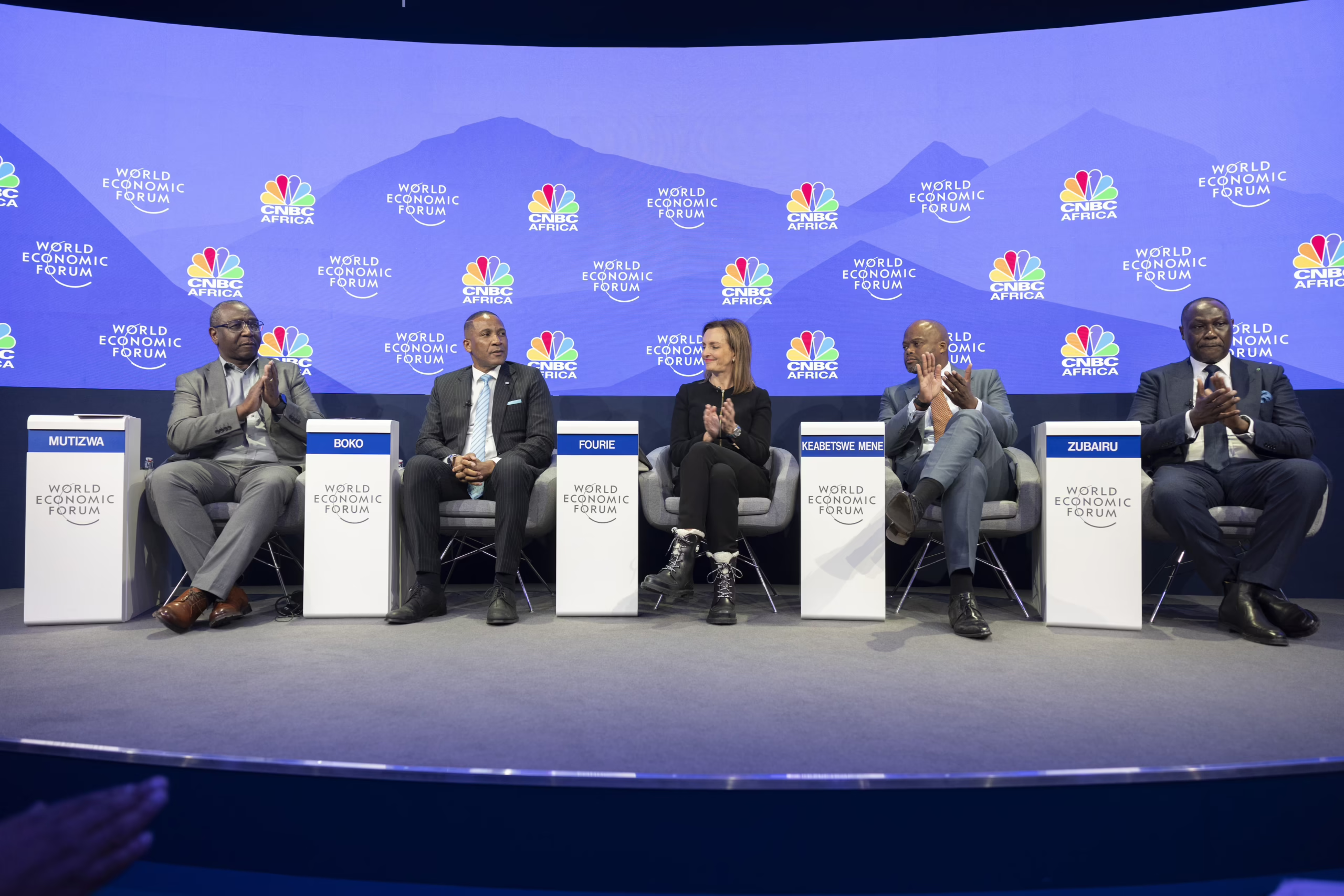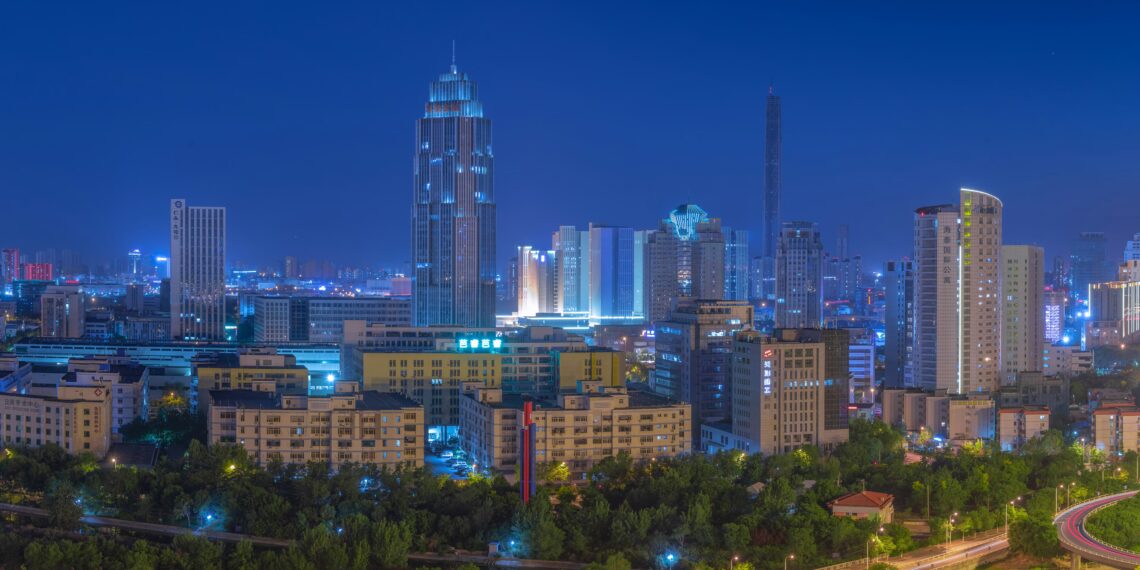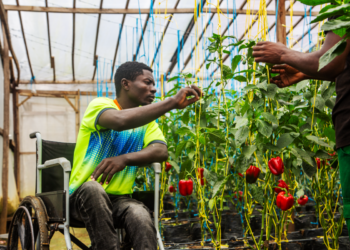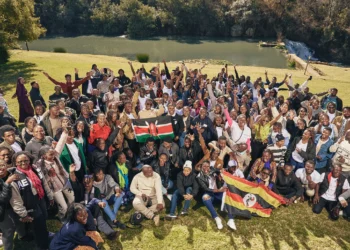By Gim Huay Neo, Managing Director, World Economic Forum
Amid trade and geo-economic tensions, extreme weather events, social polarization and disruptive technological changes, the global outlook may seem more unsettled than ever. Yet, it is in such turbulent times that entrepreneurship proves its enduring value.
Two areas stand out as especially critical for entrepreneurial action and new collaborative frameworks: addressing the climate emergency and shaping global governance for technology.
History shows that entrepreneurship often thrives in difficult times, prompting shifts in our worldviews and ways of working, creating opportunities for new businesses to emerge and for existing ones to evolve and build new capabilities. Challenging periods can also be a rallying call to forge new relationships and renew a sense of solidarity and support with long-standing partners.
Effective leadership key in turbulent times
In these circumstances, entrepreneurship through leadership is essential. Effective leaders navigate uncertainty, innovate solutions, take calculated risks and bold decisions, and inspire others – mobilizing resources and forging partnerships to shape tomorrow’s world.
Even while facing immediate challenges, leaders must also develop a long-term vision, anchored in values, ethics and purpose. As they leverage technologies such as artificial intelligence to build a comparative advantage, it is crucial to pair innovation with the irreplaceable human qualities – conscience, compassion and meaningful connections.
Unlocking growth and prosperity in this new era requires leaders to harness our collective capacity for creativity, collaborating and co-creating By re-imagining methods of production and consumption, we can drive progress towards the Sustainable Development Goals.
Entrepreneurship that stands the test of time is fundamentally oriented toward serving humanity. Forward-thinking entrepreneurs recognize that long-term business viability depends on aligning profit with purpose – integrating commercial success with a commitment to the greater good.
This approach is reflected in concrete actions: investing in employees, strengthening customer and supplier relationships, and safeguarding the overall health of the environment and broader ecosystem. These efforts create a virtuous cycle, where business profitability generates and promotes a greater sense of well-being for all.
Addressing the climate emergency
Entrepreneurs are already turning the climate emergency into a catalyst for industrial reinvention, pioneering business models that decarbonize economies while unlocking new value chains.
In recent years, China entrepreneurs have built a global industry in electric mobility, significantly advancing the green energy transition and decarbonization efforts. In 2024, China produced more than 70% of the world’s electric vehicles (EVs), supported by 13.75 million chargers. As a result, nearly half of all cars sales in China last year were EVs.
Globally, eco-entrepreneurial endeavours are successfully integrating profit, people and planet. A recent World Economic Forum study estimates that companies investing in adaptation, decarbonization and resilience are seeing up to $19 in avoided losses for every dollar spent.
China’s completion of the 3,046km green barrier encircling the Taklamakan Desert, the world’s largest such project, has halted desert expansion and reduced sandstorms, and also boosted local economies. Farmers now intercrop medicinal herbs under shelterbelts and solar farms generate clean energy while enabling agricultural production below the panels. The initiative has supported agriculture and eco-tourism, and created jobs.
Harnessing technology with ethics
Technology can aggravate global divides, but can also be a great equalizer. Digital education platforms are democratizing access to knowledge, breaking geographic and socioeconomic barriers.
Online learning and AI-driven tools empower individuals in remote or underserved regions with world-class education and vocational training.
However, technological progress must be guided by human ethics. Some Chinese AI models are trained on diverse linguistic and cultural data, mitigating the risk of value deviations stemming from cultural differences in training data.
Upholding ethical boundaries requires balancing efficiency with equity. Pioneering AI tools designed for hiring demonstrate this principle by ignoring demographic variables like age or location and instead focusing on skills and experience – actively working to prevent algorithmic bias and promote fairer opportunities.

Innovation and collaboration for systems change
Climate emergency and technological disruptions are systemic challenges that demand new forms of innovation and collaboration across policy, finance, geographies and generations.
Policy acts as a crucial catalyst for market transformation. The European Commission’s Clean Industrial Deal focuses on energy-intensive industries and the clean-tech sector, demonstrating how regulation can accelerate sustainability by making decarbonization a driving force for Europe’s industrial growth.
Finance is also evolving. Innovative finance mechanisms, like the $185 billion outcome-based funding market, while still nascent, are integrating non-financial objectives with risk management and financial returns. For example, the nine-year $225mn Amazon Reforestation-Linked Outcome Bond issued by the World Bank links investors’ financial return to carbon removal.
There is immense potential to tap into the entrepreneurial energy of the next generation for systems change. In Africa, 80% of start-up founders are under 35, exemplifying its entrepreneurial dynamism in solving local challenges with global relevance.

Through the Uplink platform and #GenerationRestoration, the World Economic Forum with its partners support these entrepreneurs by connecting them with investors, policy-makers and other stakeholders, equipping them with the tools and resources to build scale.
The Forum’s global networks also foster responsible technology governance. The AI Governance Alliance brings together leading voices from more than 500 organizations across industry, government, academia and civil society, to promote the development and deployment of AI systems that are transparent, accountable and aligned with human and societal values, while advancing practical frameworks to guide their implementation globally.
Embracing the core spirit of entrepreneurship
At the heart, every successful entrepreneur shares a curiosity to learn and grow, an appetite to evolve and the humility to recognize that there is always room for improvement.
The scale and complexity of today’s challenges remind us to embrace this core spirit of entrepreneurship. No single entity or country has all the answers, nor can any one actor tackle these challenges alone.
Building a thriving new era requires open dialogue and strong partnerships across both public and private sectors. The notion of ‘prosper thy neighbour’ is more important than ever and we must continue to nurture a culture of mutual benefit whether in politics, economics and society.
For two millennia, the early entrepreneurs of the Maritime Silk Road transformed regional commerce into global exchange networks. Their ventures not only enabled unprecedented flows of goods, ideas and technologies, but also bridged cultures, advanced civilizations and opened up opportunities for human development and progress.
Today, in Tianjin – the strategic hub of the 21st century Maritime Silk Road and the host city of the Annual Meeting of the New Champions 2025 – the Forum seeks to re-ignite the spirit of exploration through public-private dialogue, turning entrepreneurial courage into ethical technology, sustainable and resilient growth.
At the Annual Meeting, we take inspiration from these early entrepreneurs to build pathways for a new era of prosperity.
This article was first published on the World Economic Forum website.










